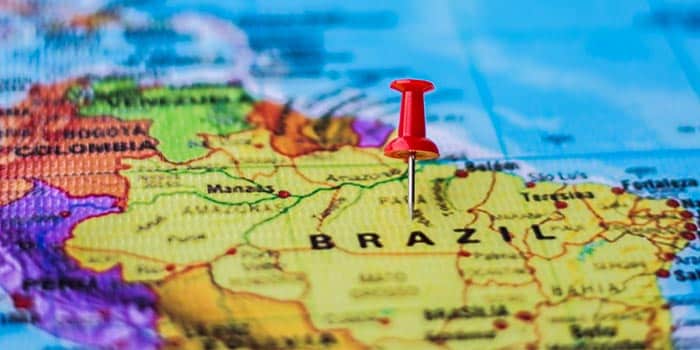The newly regulated Brazilian betting market has completed its first entire month, and the pressing question regarding the channelization rate is looming over the industry.
Early estimates from AI-driven market analytics platform Blask indicate that Brazil’s betting sector generated approximately $154 million in gaming revenue during the first month of 2025.
Blask analyzes billions of search queries and offers up to 95% accuracy in assessing market size, competitor activity, and channelization trends.
One-Third of Betting in Brazil, Done Illegally
The breakdown of this revenue reveals that locally licensed operators accounted for $101 million (roughly 64%), while internationally licensed platforms contributed $53 million (34%).
In other words, almost one-third of all betting activity still occurs outside the country’s regulated framework.
This remains a critical concern for both policymakers and licensed operators striving to bring more bettors into the legal ecosystem while cracking down on unlicensed entities, especially in the context of a recent study from H2 Gambling Capital that revealed the number of active accounts could reach 36 million by 2026.
Plus, the summer could bring even more expansion news, with the government favoring the legalization of brick-and-mortar casinos as a means of attracting more revenue while further countering the black market.
“There Is Still Work to Be Done”
The National Association of Games and Lotteries (ANJL), which was created in March 2023 to promote responsible and regulated gaming in the country, regards the fresh regulation of online gambling as a positive step forward.
The agency that represents the interests of members, including many sector operators, also acknowledged that there is more work to be done.
“Federal regulation was a step in the right direction, but there is still work to be done in ensuring more operators migrate to the legal framework and in educating consumers on the benefits of betting within a regulated environment,” the ANJL explained.
Stake.com’s country manager, Thomas Carvalhaes, emphasized patience and adaptability.
“When analyzing newly regulated markets, it’s important to be pragmatic. Historically, no market — whether in Europe or North America — has gotten it completely right from the start,” Carvalhaes said.
He went on to explain that while each market is unique, “the Brazilian regulator has made significant strides in several areas.”
Carvalhaes also explained that their role as licensed operators is to “support the process by working with regulators and authorities” to discover gaps and address them appropriately.
Propane’s director, Alan Brincat, took the opportunity to highlight a few key industry trends, saying the “numbers don’t come as a surprise” and explaining government officials still have “a long way to go when it comes to effective enforcement.”
Brincat, whose avant-garde agency stands out as an innovative leader with the goal to revolutionize the field, expressed concern regarding how the majority of licensed operators “experienced a decline in growth during January rather than an uptick.”
The explanation could be attributed to various factors, including the offseason of the most-watched soccer league in the Americas, Serie A (Brasileirao), the domain blocking that took place at the start of the fourth quarter, and the fact that many operators chose to scale down marketing efforts until they finished adapting to the new compliance requirements.





GIPHY App Key not set. Please check settings